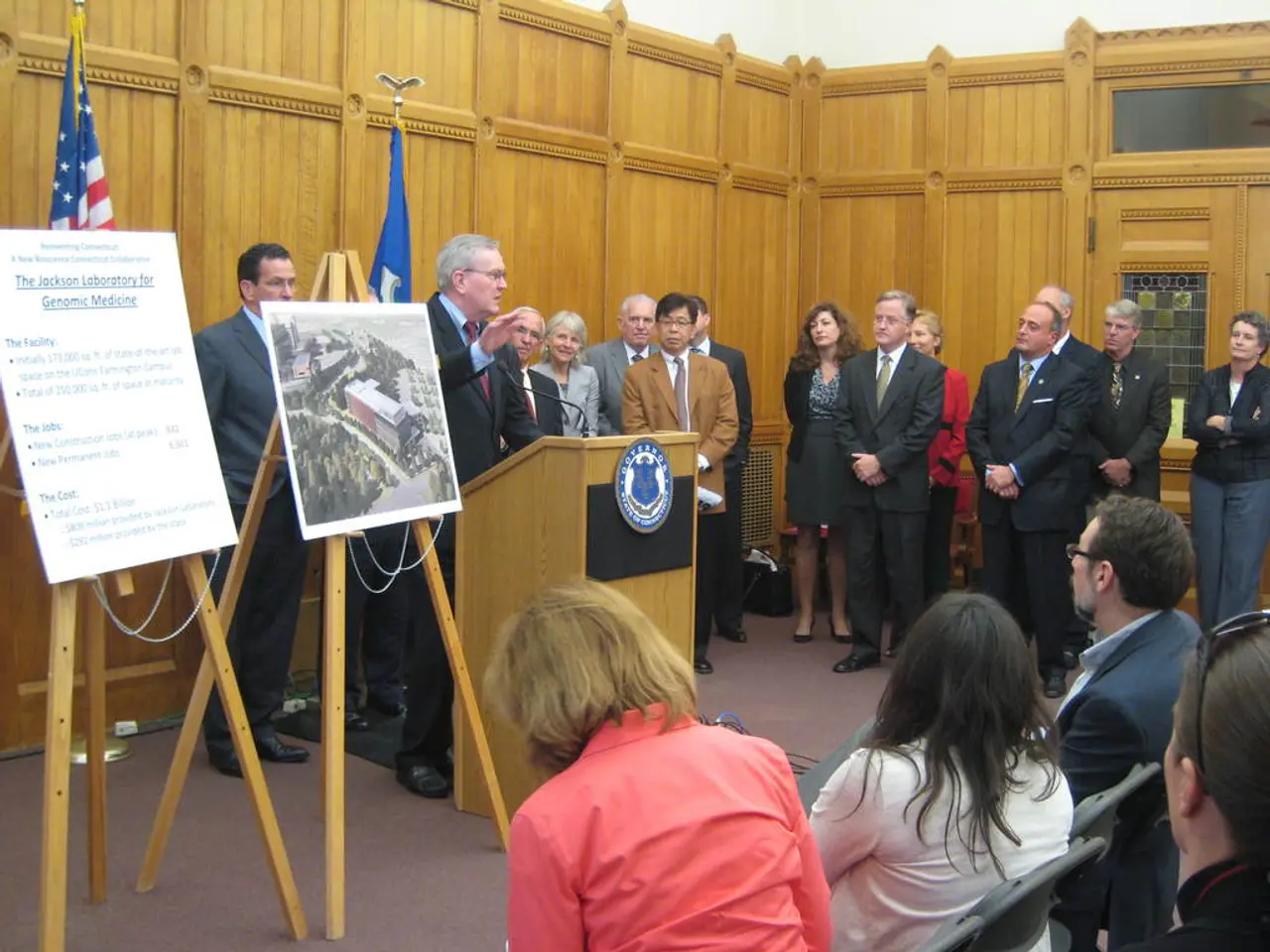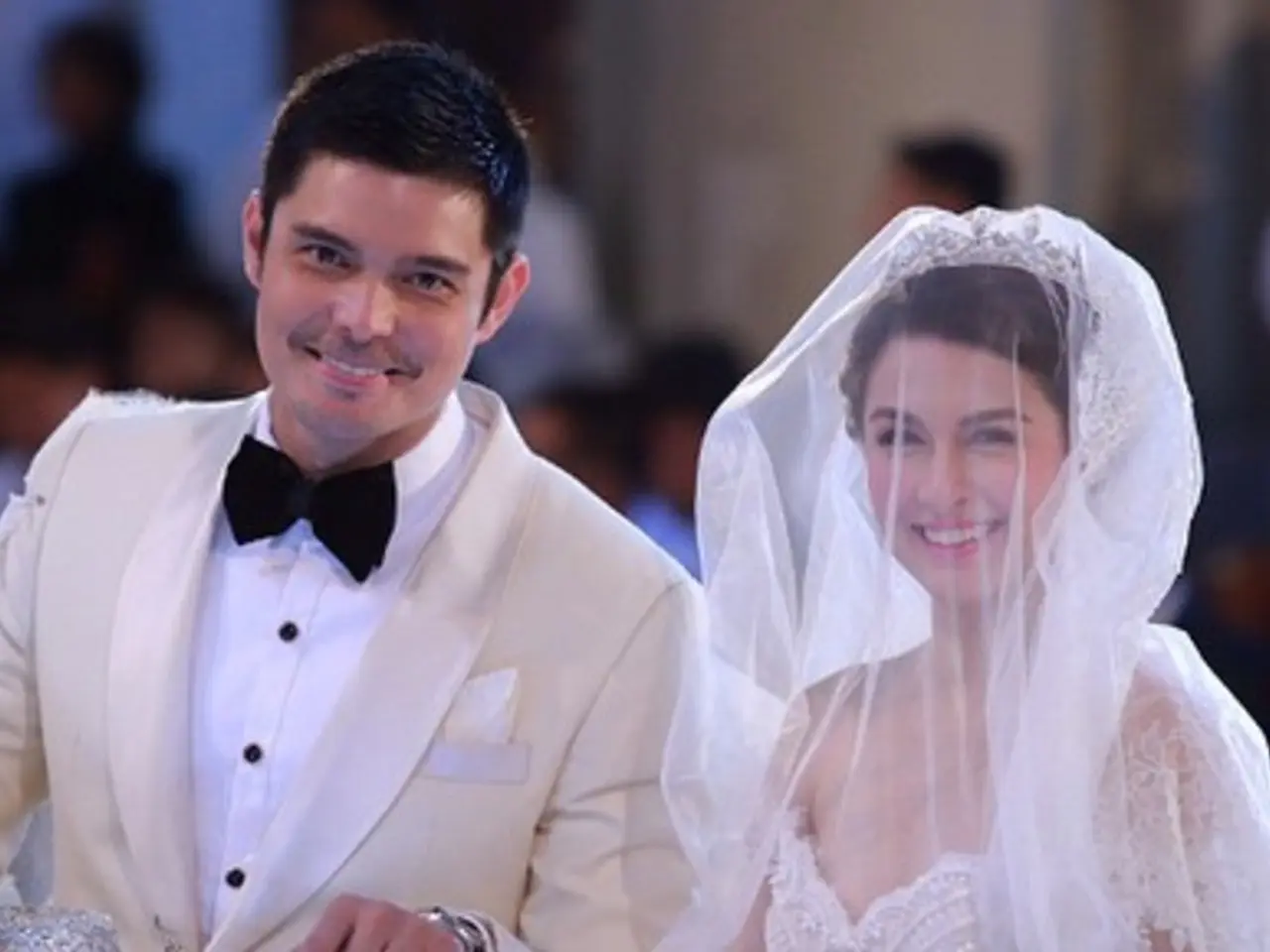Critics find resolution with Frauke Brosius-Gersdorf - Critics are being addressed by Frauke Brosius-Gersdorf
Frauke Brosius-Gersdorf, a prominent German constitutional law professor, has found herself at the centre of a heated debate over her stance on the protection of unborn life and accusations of "ultraleftism". This controversy has led to a parliamentary deadlock and sparked a broader discussion about judicial independence and political intervention.
At the heart of the controversy is Brosius-Gersdorf's argument that legalising abortion within the first twelve weeks of pregnancy would be constitutionally permissible in Germany. She has also suggested that the constitutional guarantee of human dignity may not begin at conception but from birth, a view that challenges the long-standing legal and moral consensus in German constitutional law.
These views have drawn sharp criticism, particularly from conservative and Catholic figures. Two influential Bavarian bishops stated that anyone who "relativizes human dignity protections" should be disqualified from serving on the court, positioning her remarks as grounds for disqualification. Some CDU parliamentarians also publicly deemed her "unelectable" due to these views.
The planned election of three constitutional judges in the Bundestag last Friday was unsuccessful due to internal resistance within the Union against Brosius-Gersdorf. The nomination sparked a widening rift within Chancellor Friedrich Merz's coalition, with the CDU/CSU bloc withdrawing support at the last minute and calling for the vote to be removed from the parliamentary agenda.
Adding to the controversy, a plagiarism allegation surfaced against Brosius-Gersdorf just before the scheduled vote, further complicating her candidacy. Neither she nor her university has yet commented publicly on this allegation.
SPD representatives defended her as a respected constitutional expert and labeled the attacks a politically motivated "smear campaign". However, Brosius-Gersdorf has not issued a public statement directly addressing the accusations of relativizing unborn life protection, ultraleftism, or the plagiarism allegation.
As of the most recent reports, Brosius-Gersdorf has released a statement criticizing media and political decision-makers for what she deems as inaccurate, incomplete, biased, and opaque reporting. She denounces her classification as "ultra-left" or "radical left" as defamatory and far from reality, asserting that such criticism was intended to prevent her election.
It remains unclear how the necessary two-thirds majority in the Bundestag will be achieved for the judicial election involving Brosius-Gersdorf. The SPD parliamentary group has stated that it wants to stick to the nomination of Brosius-Gersdorf.
References: [1] "Brosius-Gersdorf: SPD will stick to nomination", Deutsche Welle, July 15, 2025. [2] "Brosius-Gersdorf: SPD defends constitutional expert against attacks", Tagesspiegel, July 14, 2025. [3] "Brosius-Gersdorf: Professor's views on abortion spark controversy", Frankfurter Allgemeine Zeitung, July 13, 2025. [4] "Brosius-Gersdorf nomination sparks coalition crisis", Der Spiegel, July 12, 2025.
In the midst of these contentious political times, the debate over Frauke Brosius-Gersdorf's nomination for the constitutional court has taken a turn towards policy-and-legislation, with allegations of ultraleftism and controversy over her stance on abortion. This controversy, which has resulted in a parliamentary deadlock, is also linked to discussions on judicial independence and political intervention.
The Commission, in light of this, has also been asked to submit a proposal for a directive on the protection of workers from the risks related to exposure to ionizing radiation, aiming to draw attention away from the heated political discourse and towards broader general-news concerns. However, the ongoing debate and the plagiarism allegation against Brosius-Gersdorf continue to cast a shadow over her candidacy.







